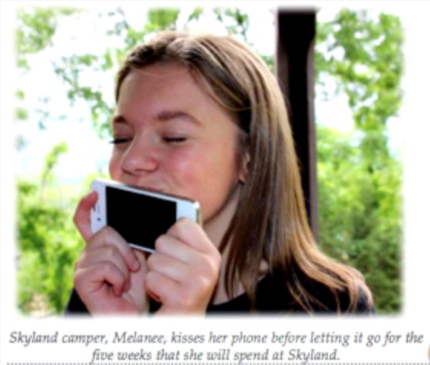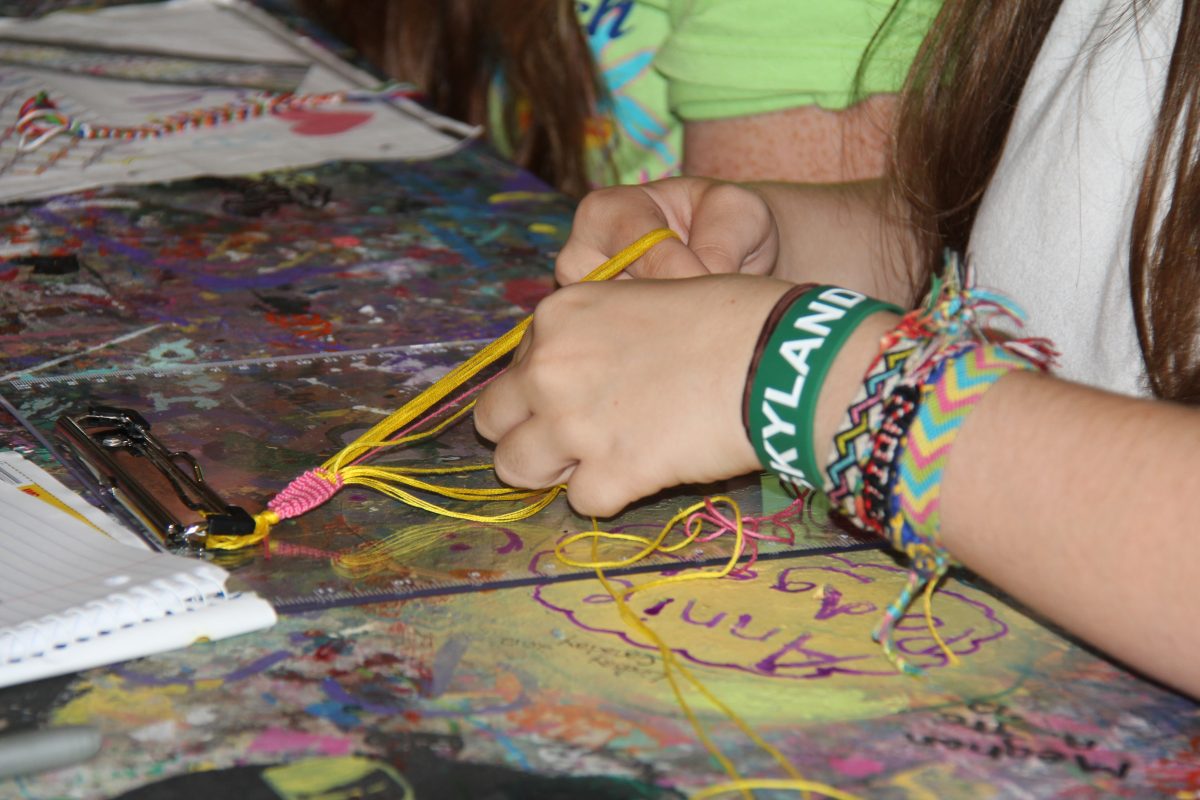 It’s a typical Opening Day at Skyland. Beyond the excited screaming, hugging and reuniting with summer friends, campers visit a handful of stations as they check in to camp. They review health forms with the nurse, meet their counselors and, a more recent addition, hand electronics, including cell phones, iPods, tablets and gaming devices, off to their parents.
It’s a typical Opening Day at Skyland. Beyond the excited screaming, hugging and reuniting with summer friends, campers visit a handful of stations as they check in to camp. They review health forms with the nurse, meet their counselors and, a more recent addition, hand electronics, including cell phones, iPods, tablets and gaming devices, off to their parents.
The latter step in this list is one that camps all over are continuously revisiting and refining. Today, point-and-shoot cameras post pictures directly to Instagram and wristwatches send emails through voice command. As technology booms, some question how the traditional model of summer camp will stay relevant in a screen-obsessed world.
What we’re finding at Skyland might surprise you. Skyland is relevant because it is a tech-free space.
Without devices to find distraction in or hide behind, campers have access to a world that they may not experience anywhere else. Campers in tech-free spaces learn to understand another’s perspective, see how their words and actions impact others, gain patience and focus, and actually laugh out loud together.
In a 2014 study by researchers at the University of California, Los Angeles, pre-teens attended a residential summer camp free from television, computers and mobile phones. They were tested before and after the camp in their ability to read nonverbal emotion cues and to identify the emotions of actors in videotaped scenes. After just five days, the campers’ improvements in these abilities significantly outperformed improvements by the control group, which did have electronics.
“One of the most harmful consequences of the amount of time kids now spend on screens is a decrease in interactive play in children’s lives” reports Kenneth Barish, Ph.D., a professor at Cornell University’s Weill Medical College.
“Interactive play…is to children’s social development what talking with children is to their vocabulary development and what exercise is to their physical development.”
When campers unplug from their electronics, they strengthen their social skills and their connections with one another.
We’ve even found this tech-free environment to be a desirable component for adult campers at Mother-Daughter Weekends and Skyland Retreat events. One adult camper commented that she hadn’t felt such freedom in years. Like many others, the tech-free space helped her to recognize, and let go of, an underlying stress caused by gadgets and constant connectedness.
That said, most people still approach Skyland’s tech-free environment with hesitation. Parents, campers, and even our own staff initially struggle with the idea of not being able to call, text or check social media; and that can feel scary. The tech-free environment takes away the electronics safety net that so many of us have come to depend upon.
Being able to set aside gadgets and to let go of the pressure and responsibilities of the outside world allows campers (adult and child) to tune in to the people they’re with and their experience right now. Tech-free summer camps remain relevant in our screen-obsessed world because they provide opportunities for an entirely different level of connection.




